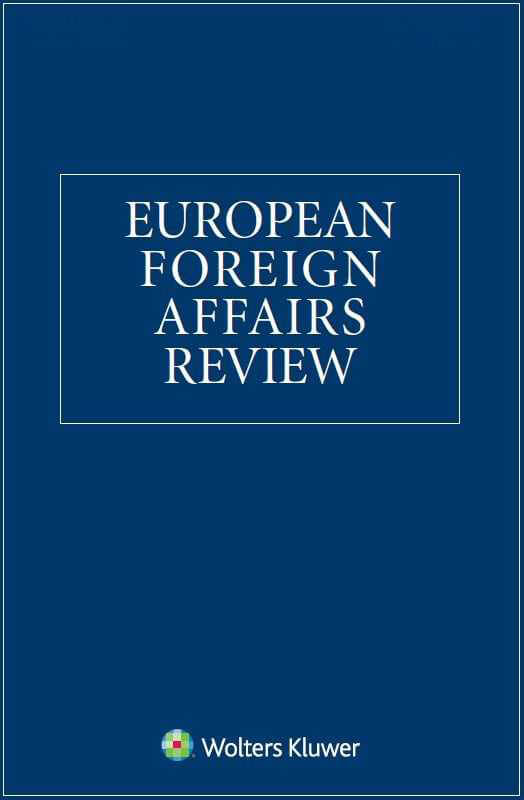Home > All journals > European Foreign Affairs Review > 19(3) >

$15.00 - Rental (PDF) *
$29.00 - Article (PDF) *
Hrant Kostanyan
European Foreign Affairs Review
Volume 19, Issue 3 (2014) pp. 373 – 392
https://doi.org/10.54648/eerr2014030
Abstract
This article applies the principal-agent model to examine the discretion of the European External Action Service (EEAS) agent vis-à-vis the Member State (MS) principals in the negotiation of the EU-Moldova Association Agreement including the Deep and Comprehensive Free Trade Agreement (DCFTA). The EEAS was allocated various responsibilities in each of these policy areas. While the EEAS is in charge of negotiations on political association, it does not lead in the area of free trade talks; the Directorate General for Trade of the European Commission plays a greater role in this process. Moreover, in the areas of sectoral cooperation pertinent to the EU-Moldova Association Agreement, the EEAS has to rely extensively on the expertise of the European Commission's Directorates General. The European Commission therefore functions as a horizontal check with regard to the EEAS. The article finds that in order to monitor and control the EEAS' action throughout the negotiation of the EU-Moldova Association Agreement, the MS employ ex ante and ex post mechanisms. The control exercised by the MS and the checks applied by the Commission considerably limit the EEAS' discretion in pursuing the Association Agreement and the DCFTA between the EU and Moldova. Besides applying the principal-agent model, the original empirical research of this article contributes to the understanding of the EU's post-Lisbon foreign policy institutional architecture.
Extract
